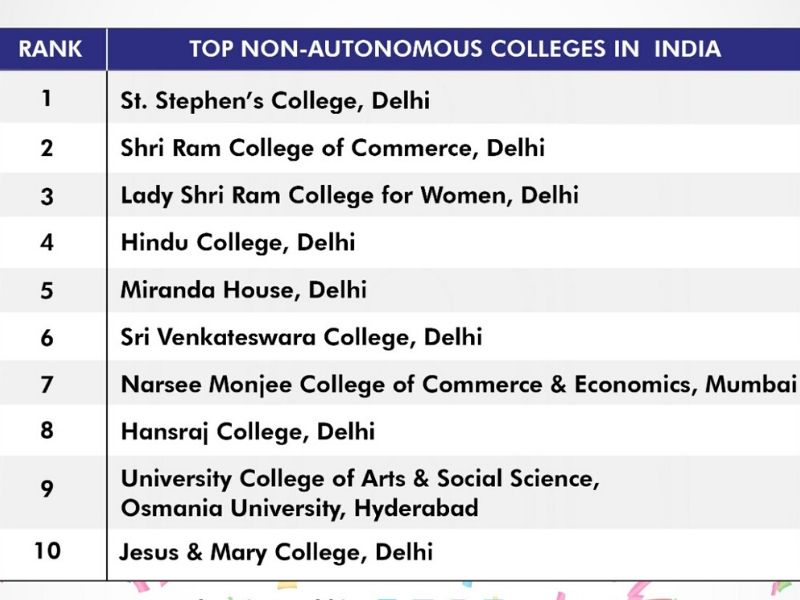The paradox of India’s multi-layered structure governing higher education is that some of the country’s most admired undergrad colleges, which should have been awarded academic autonomy decades ago, are tied to the apron strings of their affiliating universities. These colleges are ranked separately in EWIHER 2020-21 Even in the 21st century, India’s higher education system is a regulatory maze. The country’s 39,931 undergraduate colleges and 993 universities are strictly monitored, supervised and regulated by several apex organisations including the University Grants Commission (UGC), All India Council for Technical Education (AICTE) and Medical Council of India (MCI) etc, which in turn are governed by the Union ministry of human resource development (HRD) accountable to the Union cabinet. Moreover, capital intensive institutions of science, technology and business management such as the Indian Institute of Science, IITs and IIMs (and JNU) — established by special legislation of Parliament — are directly controlled by the HRD ministry. This multi-tiered regulatory structure governing higher education was designed to enable government and the ruling party at the Centre — i.e, Congress which ruled over post-independence India for over half a century — to closely monitor and supervise higher ed institutions to ensure that capitalist and other heretical ideologies and content didn’t creep into their syllabuses and curriculums. This Big Brother supervisory system was inspired by communist ideology, especially of the (since collapsed) Soviet Union. Independent India’s first prime minister, Jawaharlal Nehru and his daughter Indira, who served three terms as prime minister after Nehru’s demise in 1964, were deeply enamoured with the Soviet Union and its control-andcommand economy. Hence the strict regulation and ‘backdoor nationalisation’ of India’s pioneer private higher education institutions whose academic and administrative autonomy was — and remains — severely circumscribed by government organisations such as UGC, AICTE which prescribe elaborate rules and regulations for universities which stringently control and micro-manage affiliated colleges. In all states of the Indian Union, private colleges are obliged by law to be affiliated with state or Central universities. As a result some state universities such as Mumbai, Bangalore and Madras, have 600-700 affiliated colleges. As such they are obliged to follow the prescribed syllabus of the affiliating university which conducts exams, awards grades and degrees. Under this standardisation process, even India’s most famous private colleges established more than a century ago have substantially lost their identities and reputation because syllabuses and curriculums have been reduced to the lowest common denominator, exam papers are evaluated by university appointed assessors and degrees awarded are of the affiliating university. Following liberalisation of the Indian economy in 1991 and emergence of academically and financially autonomous private universities established by special legislation of state governments (education is in the concurrent list of the Constitution of India), which have been enthusiastically welcomed by the public, there’s been increasing pressure from top-ranked colleges for academic autonomy. They want to build their brands and recover their lost independent identities. Consequently, under its rules and guidelines UGC has awarded academic (and financial) autonomy to 747 (of 39,931…
India’s top 100 non-autonomous colleges
